2023 या वर्षी साधना साप्ताहिकाच्या वतीने दिलेल्या तांबे-रायमाने अभ्यासवृत्तीतून आलेल्या तिघांचे व यदुनाथ थत्ते अभ्यासवृत्तीतून आलेल्या तिघांचे, असे एकूण सहा जणांचे लेखन प्रसिद्ध करीत आहोत. त्यापैकी विवेक वाघे, प्रतिक राऊत व विकास वाळके या तिघांचे दीर्घ लेख, साधनाच्या 13 जानेवारी 2024 च्या विशेषांकात प्रसिद्ध झाले आहेत. (याच अंकांच्या संपादकीयात या अभ्यासवृत्तीची संपूर्ण प्रक्रिया सविस्तर मांडली आहे, येथे क्लिक करून ते वाचता येईल.) तर अविनाश पोईनकर, वैभव वाळुंज आणि प्रिया अक्कर व नेहा राणे (दोंघीनी संयुक्त लिहिलेला) यांचे तीन दीर्घ लेख प्रत्येकी तीन किंवा चार भागांत ‘कर्तव्य साधना’वरून प्रसिद्ध करीत आहेत. त्यापैकी हा तिसरा लेख सलग चार भागांत देत आहोत..
The Qualitative data of Annual report
While our study aimed to focus on the financial statements of the co-operative society, the qualitative data alongside the financial statements in the Annual report caught our eye as ethnographic researchers. As we indulged into studying the annual report as a whole, we discovered that this qualitative data feeds into the short term and long-term interventions taken up by the society. Following sections in the Annual reports touch upon the work done by the society in the given Annual year. To understand the kind of data included in this section, let us have a look at some of the common matters highlighted by both the societies:
CRZ: The recent amendments in the Coastal Regulations Zone act were followed by mapping exercises by the concerned authorities and the urban coast of Mumbai received a different legal treatment as opposed to other coastal areas across the country. The mention of CRZ in these reports is a testament to this lopsided treatment and how it was perceived by the community. The Madh society goes on mentioning in the report their dissatisfaction with the whole implementation and the follow up that was taken up with the authorities.
Demand for extension of fishing area beyond 12 nautical miles: The societies bring attention to pollution caused by sewage plants, industrial fluids and increasing waste in the sea which has made is difficult for the fishers to find catch within the prescribed area of 12 NM and therefore they are appealing the government through this report to provide extension to all the Koliwadas of Maharashtra.
Demand for change in Fish ban period: The society on behalf of the fishers have been demanding to change fish ban period from 31st May-1 August to 10th June-15th August. The rationale behind this demand is that the proposed fish ban period does not coincide with the fish breeding season and also avoids heavy cyclonic winds of August.
Pollution: The heavy industrialisation on the coast across Mumbai has resulted in an increase in pollution of the coast near Mumbai. Both the societies studied have taken cognisance of this factor and supported it with anecdotal evidence of reduction in overall fish catch.
Exploitative Fishing: the exploitative fishing practices like trawling, purse seine net fishing, use of LED lights is a major point of contestation and confrontation within the larger fishing community. As both of these co-operative societies represent traditional fishers the issue finds a consistent reference in all the reports of the societies under consideration where they demand strict implementation mechanism on regulating the ban of purse seine and LED imposed by Maharashtra Government.
Opposition to Proposed Vadhvan port: The proposed port at Vadhvan by JNPA poses a great threat to ecology and livelihood of fisherfolks in the entire Palghar and Dahanu district. The larger coastal community across the state and nation has taken a stand to oppose this project and the same resolve is reflected in these reports.
All these issues together represent a solid basis for advocacy through which the members of the co-operative societies can be mobilized. The reports also include any updates on the issue and the status of the issue along with the intervention of the society on an annual basis through these reports.
Interventions: List of top fish sellers to motivate more members to sell through the society: This data shows that the society has annual data of fish sold by each member. A study of fish catches of this population by extracting quantity of fish catch sold against the fish value over a period can be helpful in understanding the fluctuations in fish catch and its effect on the fishing occupation.
The society does not mention the amount of fish sold by each member, for the sake of privacy, but the chairman informed us that they have details of fish sale of each member on the list.
Infrastructural development of fishing and the village: The qualitative part of the Annual report issued to inform the stakeholders about the status of the infrastructure projects that society has undertaken or proposing to undertake. It includes infrastructural facilities not only for fishing occupation but also for the village. For e.g., Bhati constructed a fish drying platform and public toilets, advocated for sideline construction in the village, and took lead in relief work during COVID. Building shed for net makers, extension of Jetty, water breaker, drinking water facility at the jetty are some of their proposed projects. These projects are a way of the society in transforming the data they collect as a community institute into practical actions. Though their methods may not look very “systematic” to our outsiders eye, these projects are proof of a community system developed through the co-operative society that we need to learn from.
Appeal for the neighbouring societies to participate in Sukanu Committee of Talapsha jetty: The Bhati co-operative society acknowledged the efforts of Madh co-operative society in the reconstruction of Talapsha jetty, which is being used by all the koliwadas to park their boats during monsoon. Along with this, they also used the annual report to appeal to the other fisher’s societies to participate in the Sukanu Committee formed to oversee the functions of Talapsha Jetty.
Acknowledgement of students who cleared 10th, 12th, and degree: This data doesn’t just show us the involvement of society in community but also tells the kind of data it has been recording over several years.
Gratitude:
The last section of the Annual report, before starting the financial statement, is used to show gratitude to various external stakeholders like Minister Aslam Shaikh for his efforts in building Fish drying platforms, Dishpol, and the side lane. They thanked MLA Gopal Shetty for his contribution in securing funds for the reconstruction of Talapsha Jetty from the Maharashtra Government. Corporator Sangita Sutar is also thanked for fixing the sewage and water pipeline issue of the Bhati village. Accordingly, they have also thanked village-level leaders, Bhati Gram Vikas Mandal and the diver of Bhati who rescued boats and nets stuck underwater.
Conclusion
Narrative Building
The co-operatives are a representation of the fishing villages, as most of the boat owners and non-boat fishing and to a certain extent fish sellers too are associated with these institutes. The report is a crucial document of overall functioning of the co-operative and as a practice it is distributed to every single member in order to keep them informed and updated. Bhati society has gone a step further in recognising the importance of this document and digitized it making it easily accessible. They circulate the soft copy of the annual report to their members via WhatsApp group before the AGM meeting. The circulation of these reports within the community feeds into building a common narrative pertaining to issues viz political, occupational, climatic specific to their own village, fishing as a livelihood and coastal communities across the state.
Annual reports are not only read by the community but also referred to by the other co-operative societies. There seems to be a consensus on issues raised by the co-operatives across the years. To elucidate this further, pollution of territorial water presents a solid case. This issue is consistently raised by co-operatives over the period of study as it has immediate and multifold impacts. One can observe that occupational issues take a center stage as these reports are also a tool to rally support and mobilize the community over these issues. Thus, Annual Reports in its essence is a tool for local and regional, vertical, and horizontal advocacy for the coastal communities and is effectively used by the co-operatives.
Critics
Inadequate representation and inclusion of Fisherwomen:
Even though the co-operatives seem to have a considerable number of women members and active women representation on board pushing welfare activities for fisherwomen, they still have a long way to go to be inclusive. For example, the top fish sellers list consists of the majority of men in spite of the fact that the fish selling part is conducted mainly by the women of the family. The records of fisherwomen are also limited compared to the fishermen. Fisherwomen are playing a crucial role in the supply chain in the fishing industry yet they are not adequately represented in the co-operative society. Even though the membership of women might be as high as up to 40-50% when it comes to being board members, they are reduced to a tokenist representation i.e. merely matching stipulated number of representations.
Fresh catch centric functioning
As the co-operatives are actively involved in fish selling the allied functions of the co-operative are centred around fish catch and the supply chain of fresh fish. As we observed across the city, especially in the case of fish catch by artisanal fishers a considerable proportion goes for drying. Fish drying is also an important aspect of fisheries as it is also the domain where one can observe the stronghold of women. Considering all these aspects it is intuitive for co-operative societies to maintain the data of dry fish produced by their members in a fishing season. But there are no records available on this account, especially the number of members involved in fish drying, the economics and demographic of this subset of fisheries.
Upgradation of Bookkeeping
The financial records of the co-operative societies are a rich data source is a fact that can not be refuted. But as these societies negotiate their roles within the community and outside it, the data they are putting out needs to be aligned with contemporary needs. The societies can find out the data that can be crucial based on the issues that are addressed in the reports. The most talked about issue that we encountered repeatedly was the depletion of fish stock, the loss of species diversity and the threat and adverse impact of exploitative fishing gears and methods. As co-operative societies are also involved in fish selling through Fish Pedhi they also create records of fish sold every day for each fish seller. This record keeping can be further improved to include the details of fish species and the quantity of the same along with the amount. This consolidated data can be further used for analysis and also to prove the claims of coastal degradation.
Recommendations
Empowerment of Co-operative societies: Societies need to be more confident and assertive about the numbers and data they are projecting. Not just about financial robustness as an occupational institute but also a testimony to diverse ways of engagement with the community as these annual reports raise pertinent issues of the community backed by data included in these reports.
Consolidation of Annual reports: The annual reports produced by these societies have beautifully and organically evolved over decades into their existing form. Without disturbing the unique reports designed by each society, a standard format which consolidates and extracts the data from these annual reports needs to be structured. A larger consensus amongst the co-operatives needs to be built through training and possible intervention regarding annual reports by the national and state associations like MMKS, AMMKS and NFF.
Potential role of Co-operatives in fish production estimation: Determining fish production in terms of species and quantities and its methodology has always been a matter of debate and controversy amongst the state and fishers. State currently has its own methodology and mechanism to collect sample data, which nowhere includes voices from communities. Our engagement so far has shown that Co-operative societies are the closest stakeholders in recording this data. A comparative analysis of the last 5 years of fish production of top 10 fish sellers from the list of Co-operative’s Annual report by extracting data from market invoices which contains quantities and species-wise bifurcation of fish values on daily basis can be designed on pilot basis. This study can showcase the potential role co-operatives can play in estimating fish production from diverse geographies and fishing gears.
The Annual reports give a closest to reality picture of fishing practices of the Koliwada that they represent. Even though, majority of the members of these co-operatives are big boat owners, when it comes to raising concerns regarding coastal issues, they ensure inclusion of diverse communities engaged in the fishing industry of the Koliwada. These reports consist of detailed description of fishing methods and gears used for catching the specific species available locally, backed up with the financial data of the same. These reports throw a light on transition in fishing as a livelihood and as a way of life. The reports in themselves are beautiful contemporary and historic ethnographies of fishers, their culture and their occupations and therefore should be preserved and treated as important documentation of not just the urban traditional fishing villages co-existing within the city of Mumbai but also of a world class metropolitan coastal city- Mumbai!
Priyanka Akkar
priyaakkar@gmail.com
Neha Rane
nrane1507@gmail.com
यंदाच्या वर्षासाठीच्या अभ्यासवृत्तीकरता अर्ज पाठवण्याची अंतिम तारीख 29 फेब्रुवारी 2024 आहे. अधिक माहितीसाठी या लिंकवर क्लिक करा.
Tags: सहकारी संस्था मत्स्य व्यवसाय रिपोर्ताज नेहा राणे प्रियांका अक्कर तांबे रायमाने अभ्यासवृत्ती मच्छिमार कृती समिती Load More Tags

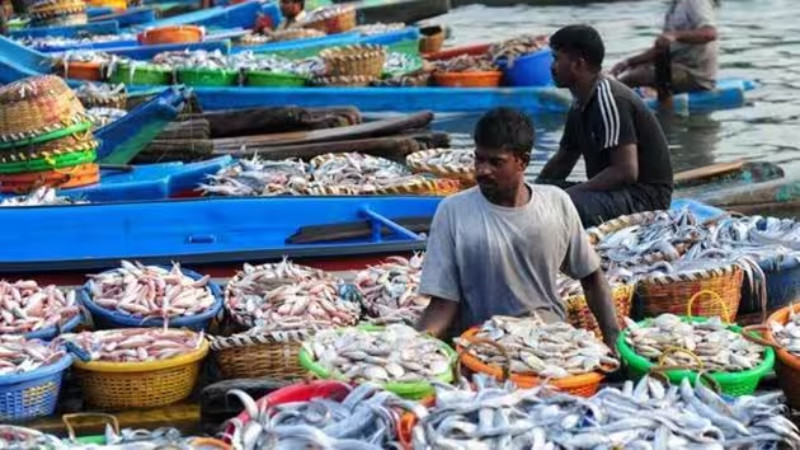
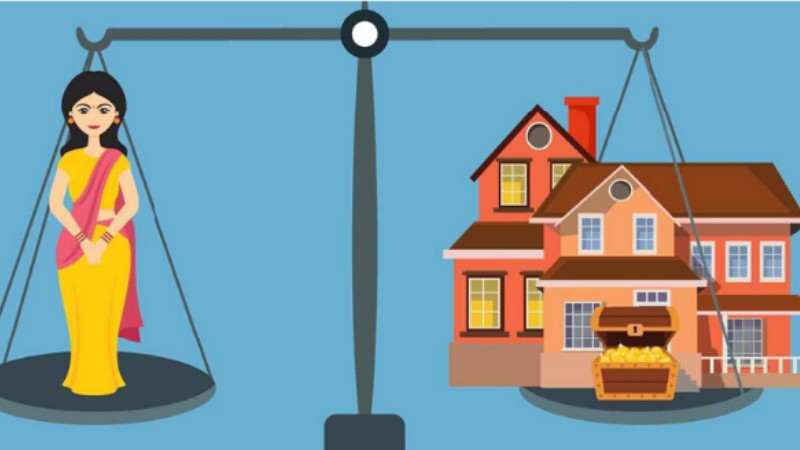

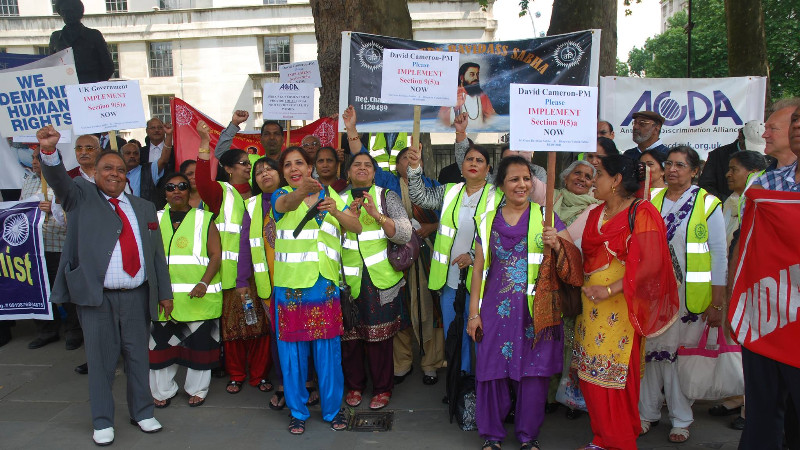
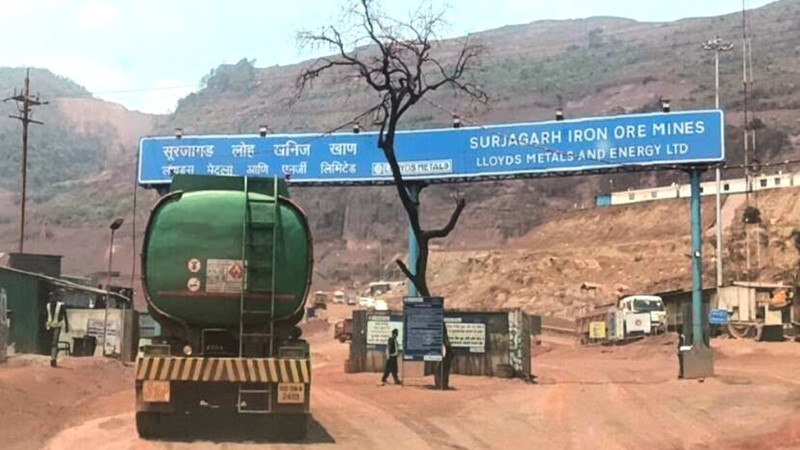
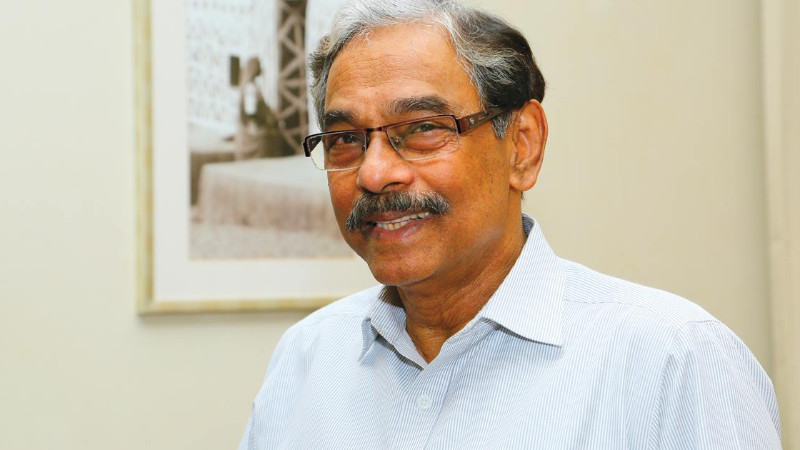
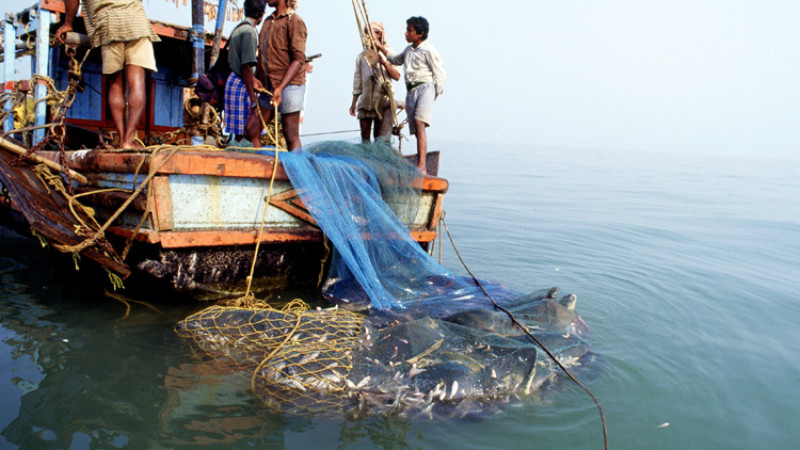
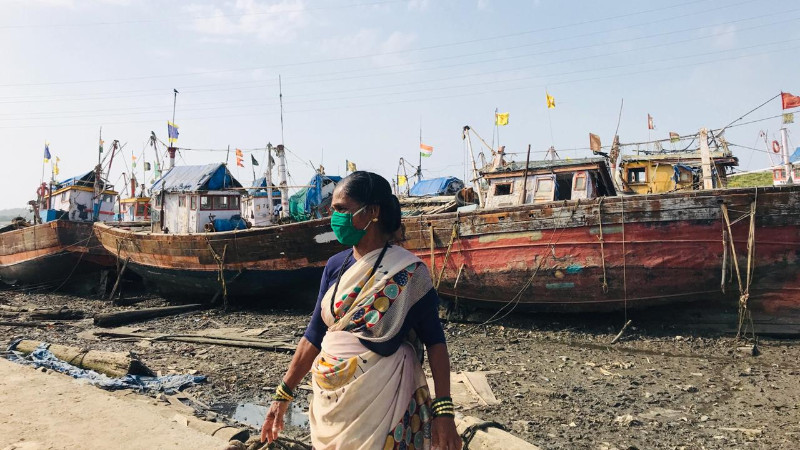
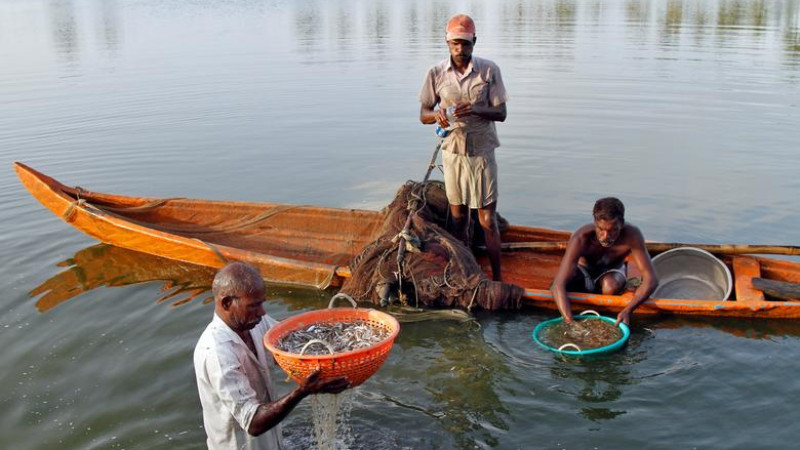

























Add Comment